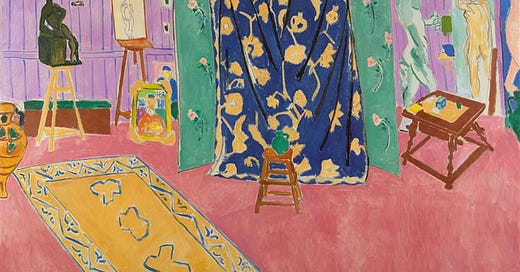I took a 10-week acting class that met for three hours every Sunday. Maybe it was a way to procrastinate on my book revisions. I told myself it was to learn how to create more compelling characters. In any case, the class was entertaining and informative, thanks to our instructor, Julia. Although I didn’t have any earth-shattering revelations about writing characters, I did learn a few surprising things about acting that apply just as well to writing fiction.
1. Acting is about not acting
When beginner actors get on stage, they switch into acting mode. What this looks like is exaggerated facial expressions, heightened tones, large gestures. It looks and sounds like acting. You wouldn’t behave or talk like that normally.
Many times in class, Julia would interrupt an actor and tell them to talk about what they did yesterday. While they talked, she would tell them to “slip in,” and they would slip into their monologue or dialogue. When she detected that they were acting again, she would tell them to go back to talking about their day, and then to slip in again. The point was to get us to stop acting.
2. Acting is finding yourself in the character
Acting isn’t about becoming a character. This is a common misperception. Meryl Streep has this great quote: “Acting is not about being someone different. It's finding the similarity in what is apparently different, then finding myself in there.” An actor can play someone who, on the surface, is completely different from them—who may even be the greatest villain in history—because there’s something in the character’s experience that they can identify with, e.g. being a single parent, struggling with mental illness, losing a loved one. That common thread is your “way in.” You’re drawing from your own experience of fear, anger, jealousy, grief, which is why acting can be emotionally demanding. Some people use acting or improv as a form of therapy to work out complicated emotions. I wanted to work with my anger, so I chose a monologue from Theresa Rebeck’s Spike Heels in which a character is confronting her fiancé’s slutty neighbor.
3. Acting is not about the how
Just as writers craft scenes by figuring out the who, what, when, where, and why, knowing these components is essential for getting into character. The more specific the information you can gather, the more successfully you can play the part. Crucially, how is not important. That’s where beginner actors go wrong: they focus on how they should act or how they should convey a certain emotion without knowing specific information about the scene, and the result feels forced. In class, we analyzed our scenes for the five w’s and let those circumstances wash over us; the how would then come naturally. “Real life model” was another useful exercise. For example, someone in the class was playing a character who was confronting her roommate for stealing her food and being a slob. She was asked to find a parallel situation in her life, either with a roommate or a sibling, and talk to that person as if they were there, then borrow the tone and mannerisms she used in the real-life scenario for the scene.
4. Acting is doing
We all had to come up with an activity for our monologues, and it couldn’t be mindless like eating. It had to require non-trivial brainpower. For example, someone did the crossword while delivering their monologue. Another person didn’t come prepared with an activity, so Julia had her play tag with someone else in the class (this was extremely entertaining). My character goes upstairs to the neighbor’s apartment to tell her to fuck off. So I ripped a page from a magazine and folded a paper boat while delivering my lines. The activity doesn’t have to be related to your monologue. The point is to do something that serves as a distraction so you’re not thinking about how you’re saying your lines. When we performed our monologues with an activity versus standing still or pacing and swinging our arms, the result was 10x more natural.
5. Acting is about letting the subconscious work its magic
I think this is true of art, generally. When a painting or a jazz concert captures my imagination it’s because there’s something being represented from the artist’s subconscious that resonates with my subconscious. The novels I enjoy the most are the ones where I feel a strong sense of truth in the writing.
The acting class reinforced for me what I already knew about writing: the more you know about your character, the more realistically you will be able to render them on the page. But if you focus on how to write the character, you risk producing something that feels contrived or overly self-conscious. I doubt Shirley Jackson or George Eliot sat down and plotted how their characters would think, talk, and act in every scene. The realism was the result of knowing the characters really well and slipping into their psyches while writing. In other words, letting the circumstances “wash over you.”





Wow ... I remember reading about your journey with acting and writing fiction in previous posts but this post really changed my perspective on what acting is.
"Acting isn’t about becoming a character" made me think about "fake it till you make it" which is basically acting, but for everyday life. This advice is purported to work really well but I've found that it works really well in certain situations but not others and that really has to do with my mindset and feelings about whatever I'm trying to fake. Once I successfully fake something, it becomes a "parallel experience" that I can draw on next time and it gets easier and easier. Similar to knowing your characters, acting is about knowing yourself well and you can use that knowledge to start becoming who you want to be deeply inside.